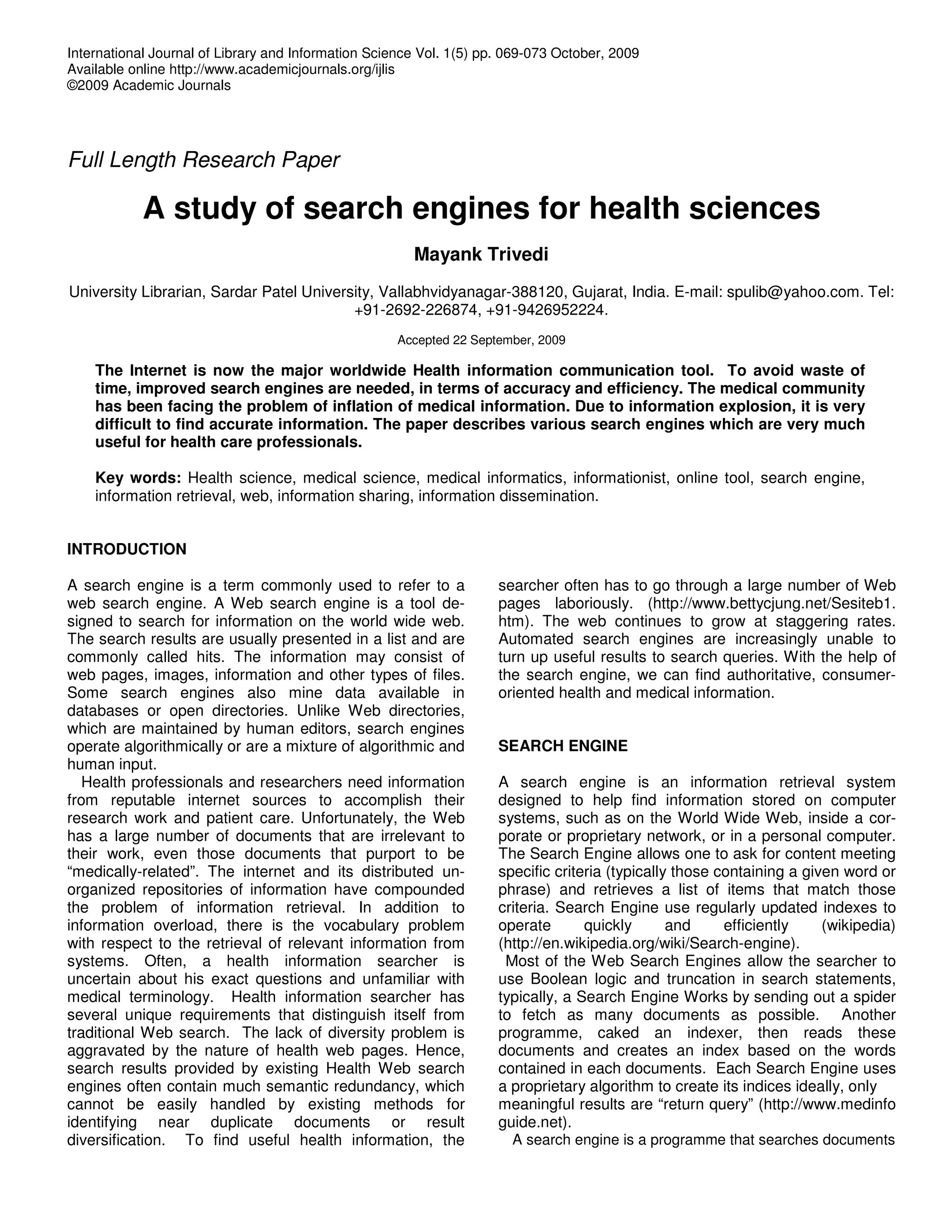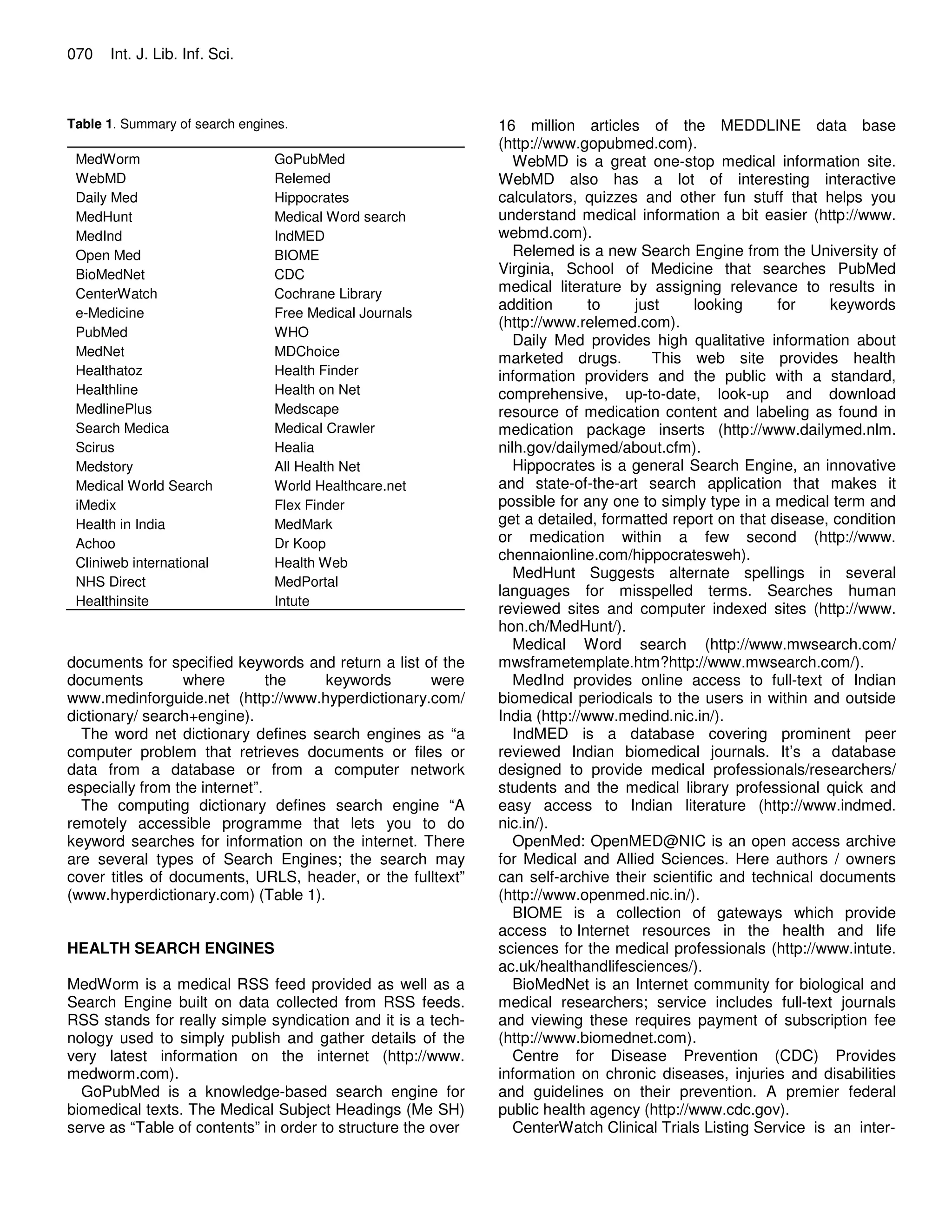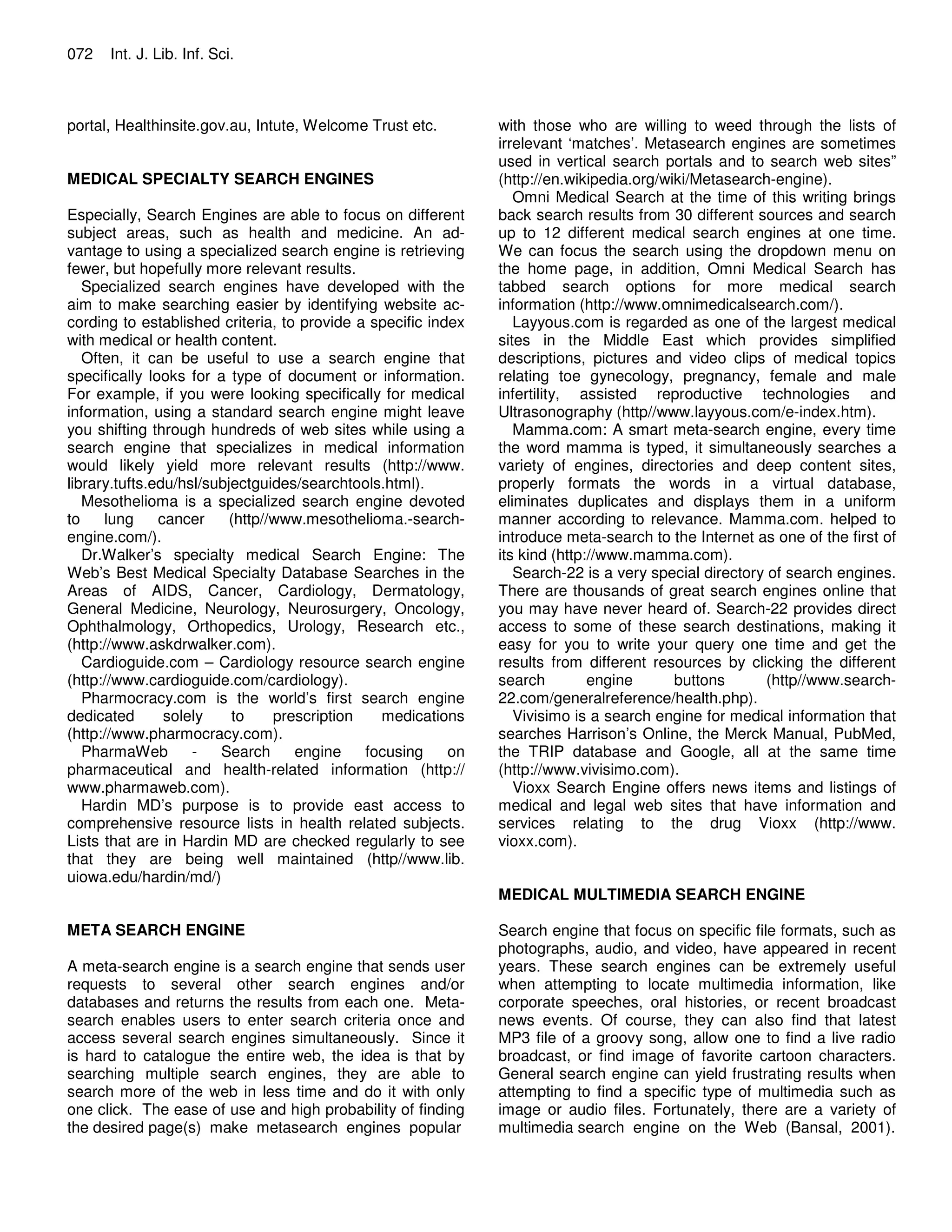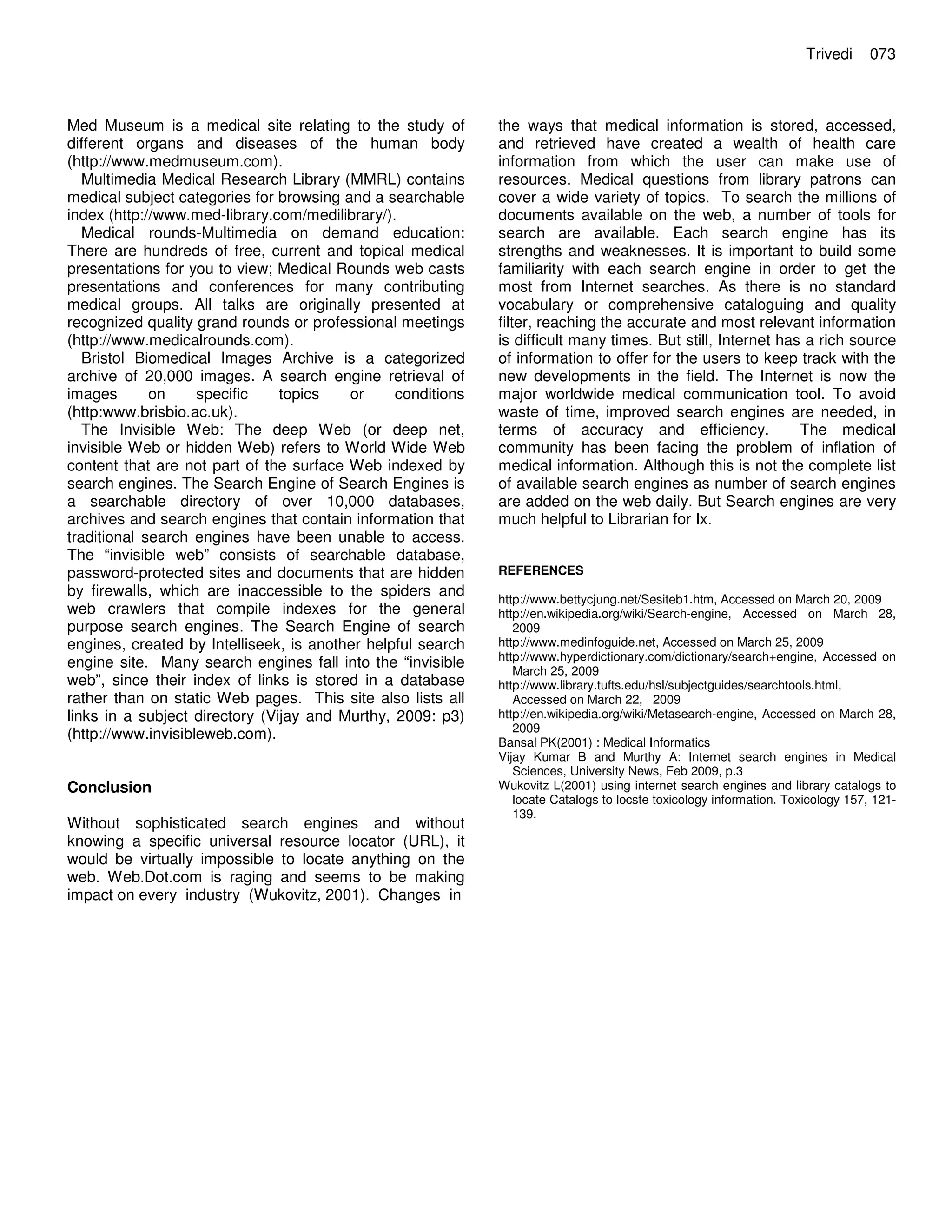This document discusses various search engines that are useful for health care professionals. It begins by defining search engines and their purpose. It then describes several specialized health search engines, including MedWorm, GoPubMed, and WebMD. It also discusses meta-search engines, which simultaneously search multiple search engines and databases. Finally, it mentions some specialty search engines focused on specific medical fields like cardiology, pharmacology, and dermatology.


![national listing of clinical research trials giving information
about physicians and medical centers (http://www.
centerwatch.com/).
Cochrane Library contains high-quality, independent
evidence to inform healthcare decision-making (http:
//www3. interscience.wiley.com/cgi-bin/mrwhome/106568
753/HOME?CRETRY=1&SRETRY=0).
eMedicine.com is clinical review articles both for the
professional and the consumer
(http://www.emedicine.com).
FreeMedicalJournals.com - Listing of magazines that
provide free access to articles. A few offer current
articles, some offer free access archived articles. Listings
by title or by specialty (http://www.FreeMedical
Journals.com).
PubMed - The National Institutes of Health now offer
free access to MEDLINE®, the best-known database of
medical literature. Full-text of the articles abstracted here
can be ordered from local medical libraries
(http://www.pubmed.gov).
WHO: An International health authority
(http://www.who.int).
Premier Medical Journal Search
(http://www.nlm.nih.gov/hinfo.html).
Med Nets is an international medical resource featuring
specialty search engines free and online
(http://www.mednets.com).]
MDchoice- Health and medical information Search
Engine for healthcare professionals and consumers
(http://www.medchoice.net).
HealthAtoZ: This is aimed at consumers and includes a
search engine, a chat with experts section and several
categories with health advice and news
(http://www.healthatoz.com).
Healthfinder : A free gateway to reliable consumer
health and human services information healthfinder can
lead you to selected online publications, database,
websites and support and self help groups, as well as the
government agencies and for non profit organizations
that produce reliable information for the public
(http://www.healthfinder.gov/).
Healthline.com is a medical information Search Engine
solely dedicated to finding medical information online and
it offers medically filtered results developed by trained
medical personnel (http://www.healthline.com).
Health on the Net Foundation offers Search Engine
such as med hunt, which performs free text searches for
web sites and categorizes the result as either Honored or
sites that did not meet HON’s criteria and HON select,
which searches web site using MESH subject headings
for faster, richer search results (http://www.hon.ch/).
MedlinePlus was develop by the National library of
medicine to provide consumer health information. It
includes guides by health topics, as well as dictionaries,
directories, and information on organizations
(http://medlineplus.gov/).
Medscape is a site that allows users (consumer or
Trivedi 071
professional) to search its many database options such
as Medical images, News, information for patients,
Clinical content, MEDLINE, AIDSLINE, and Drug Info. A
“Today’s Headline” section is updated daily to provide
fresh news for users (http://www.medscape.com/).
Search medica is a series of free medical search
engines built by doctor for doctors and other medical
professionals with localized versions for UK, USA, France
and Spain (http://www.searchmedica.com).
Medical crawler: a leading medical Search Engine
(http://medical.crawler.net).
Scirus: It is a free web search engine for scientific
information. It uses sophisticated search technology to
create the world most comprehensive science-specific
index (http.www.scirus.com).
Healia is the premier consumer health search engine
for finding high quality and personalized health
information on the web (http://www.healia.com/healia/).
Medstory search engine results are based on intuitive
search technology, which provides prequalified
information to consumers and health professionals
conducting health-related research
(http://www.medstory.com).
Allhealthnet.com: is a global medical Search engine. A
comprehensive sources of medical information available
on the web (http//www.allhealthnet.com).
Medical World Search: This tool has the ability to query
other search engines and also provides a discussion
forum, medical spelling and drug acronym devices
(http//www.mwsearch.com).
Worldhealthcare.net: A UK base medical search engine
providing informative resources from around the globe
(http//www.worldhealthcare.net).
iMedix is a community powered health search engine,
enabling people to easily find and share health
information in order to make better health-related
decision (http://www.imedix.com).
FlexFinder queries multiple medical resources in
parallel, and combines the results based on relevance
(http://www.flexfinder.com).
Health.inindia.com: Medical search engine that
searches through the top medical information portals
across the globe and delivers medical/ health information
(http://www.health.inindia.com).
MedMark: It is an incredible search engine in English
from overseas that provides extensive medical resources
by Medical Specialty (http://www.medmark.com).
Achoo: Achoo’s goal is to be “the most comprehensive
healthcare information site on the Internet.” To meet this
goal, each of its indexed sites focuses on at least one
aspects of healthcare, including: clinical health,
alternative health, and business aspects of the healthcare
field (http//www.achoo.8media.org).
There are number of many medical search engines
existing for retrieval of medical information for the
medical professionals. Some of them are CliniWeb
international, drkoop.com, HealthWeb, NHSdirect, Med](https://image.slidesharecdn.com/a1e128aa-2137-4703-8cac-d09399a53e13-150319035651-conversion-gate01/75/0046352aafa107ecc4000000-3-2048.jpg)

